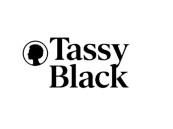In the modern digital era of the world, giant corporations have some special problems with visibility, search engines, and brand image. Although small companies may sometimes afford rudimentary SEO strategy, companies need a larger, more advanced, and well-organized strategy. This is where Enterprise SEO strategies come in.
Enterprise-level optimization is not just a matter of a few keywords or blog posts, as is the case with traditional SEO. It entails an entire system of technical search engine optimization, on-page optimization, high-authority material, automation, and cross-departmental cooperation. Good enterprise search engine optimization is not a luxury in organizations with thousands of web pages and hundreds of product lines and with an international customer base; good enterprise search engine optimization is necessary to grow and survive.
This guide will discuss the meaning of enterprise SEO, the significance of enterprise SEO and how companies can implement the Enterprise SEO best practices to be ahead of the competition.
What Is Enterprise SEO?
Enterprise SEO is the strategy of optimization of large-scale websites – most often those of large companies, e-commerce platforms, or multinational brands. Such websites usually contain:
- Thousands of indexed pages
- Several microsites or sub-domains.
- A wide product/service range.
- A great desire to be consistent in branding and messaging.
Enterprise SEO is not only aimed at ranking on a selected number of terms but also ensuring the development of scalable SEO tactics that will create persistent traffic, increase conversions, and build brand authority on all digital platforms.
Why Enterprise SEO Matters
In case of corporate websites, the stakes are far more serious than in small business. Even a slight decline in the positions of high value keywords would cost millions in revenue. On the same note, not ranking among the first search results in brand-related searches may be a blow to reputation and customer credibility.
This is why corporate web site SEO is a mission-critical issue:
- Brand Visibility at Scale- Organizations require uniform visibility in many markets, product lines and languages.
- Revenue Growth: Organic search can have a high percentage of the enterprise level conversions.
- Customer Confidence – Top ranking on Google builds credibilities and brand authority.
- Competition Management -Going global as a competitor involves more than a few simple SEO tips.
Core Components of Enterprise SEO Strategies
1. Keyword Strategy at Scale
Enterprise SEO needs a stratified approach, unlike smaller businesses that use niched keywords:
- Brand authority keywords are short-tailed.
- Long tail keywords to capture the intent of the users.
- Conversion conversion keywords.
Specialized software such as SEMrush, Ahrefs or enterprise-level SEO suites can be used in determining prospects within large content repositories.
2. Technical SEO Foundation
Existence of a strong technical backbone facilitates that corporate websites will be well-performing in search engines. This includes:
- Crawling and indexing site architecture optimization.
- Adopting structured data of rich snippets.
- Enhancing the speed and responsiveness of the sites.
- International SEO of hreflang tags.
3. Content Strategy for Enterprises
On the enterprise level, the content should be:
- Consistency -The brand voice should remain consistent over thousands of pages.
- Optimized – Matching the keyword strategy, with value.
- Scalable – Templates and automation of large volumes of content.
An effective enterprise digital marketing plan means that the work on optimizing the search engine is coordinated with the general content and branding objectives.
4. Automation and Tools
Thousands of pages can not be optimized by hand by enterprises. Automation is key for:
- Determining broken links and redirects.
- Scalable metadata optimization.
- International tracking of key measures.
- Developing SEO reports to stakeholders.
5. Cross-Department Collaboration
SEO doesn’t exist in a silo. Cooperation between: is required in enterprises.
- Teams in marketing to create content.
- Technical implementation IT teams.
- Lead sale departments.
- Budget and Strategy C-level approvers.
Enterprise SEO Best Practices
Constructing a long-term SEO strategy of big companies, adhering to the Enterprise SEO best practices can ensure its efficiency and reproducibility.
1. Centralize SEO Management
Teams in enterprises are often decentralized hence can lead to discrepancy. A centralized SEO system provides coherence between the different regions, languages and business units.
2. Focus on User Experience
The search engines are progressively favoring websites that are user experience (UX) based. This means:
- Fast loading speeds.
- Mobile-first design.
- Intuitive navigation.
- Recommendations based on individual users..
3. Optimize for Voice and Visual Search
Enterprise websites need to be ready to accommodate non-text searches with the emergence of voice assistants and image-based searches. Product descriptions, images and FAQs are best optimized to make them more visible.
4. Data-Driven Decisions
Big corporations work with huge volumes of data. The use of analytics platforms can be used to monitor performance, spot gaps, and optimize strategies using user behavior.
5. Continuous Monitoring and Updates
Search algorithms are changing regularly. Businesses need to be responsive, and they need to revise their SEO strategies on a regular basis to secure leading positions.
Scalable SEO Strategies for Enterprises
The difference between enterprise SEO and traditional one is scalability. Some of the most notable scalable SEO actions are:
- Template Optimization: The use of templates that are SEO-friendly on product pages, blog posts, and landing pages makes all the URLs consistent (thousands and thousands).
- Dynamic Metadata Generation – Title tags and meta description generated automatically with product attributes allows saving time.
- Content Clusters and Hubs Building topical authority in content hubs enhances search visibility in a number of related keywords.
- Automated Internal Linking – Providing flow and equity of SEO.
Scalable strategies enable companies to achieve quality and increase their presence on the internet.
Also Read : Commercial Gym Equipment: The Foundation of a Modern Fitness Experience
SEO for Corporate Websites: Challenges and Solutions
Enterprise level SEO does not come without obstacles. The most general difficulties are:
Challenge 1: Managing Multiple Stakeholders
It requires a long time to make decisions with marketing, IT, legal, and executive teams.
Solution: Have a proper communication channel and assign SEO heads in each department.
Challenge 2: Complex Site Structures
Large websites tend to have deep layers of navigation which influence the crawling.
Solution: Provide flat site structure and internal linkages in order to enhance accessibility.
Challenge 3: Duplicate Content
Corporate websites that have regional or product variations usually encounter the problems of duplication.
Solution: Introduce canonical tags and the content optimization based on a region.
Challenge 4: Global SEO Needs
Businesses are usually spread in other geographies having their own languages and search habits.
Solution: Take advantage of hreflang tags and localized key word research.
Enterprise Digital Marketing Strategy and SEO Integration
Enterprise SEO cannot be a stand-alone apparatus, as it needs to be embedded into the overall enterprise online marketing approach.
- Content Marketing Alignment SEO based content will ensure that blogs, videos, and white papers are a source of organic traffic.
- Paid Search Integration: The integration creates higher ROI and key word targeting.
- Social Media Synergy- Content promoted in social media boosts both visibility and backlink.
- Brand Reputation Management -Search engine optimization is warranted so that the first page of the search is filled with positive brand information.
Optimising the digital marketing environment through the integration of SEO enables businesses to maximise their brand visibility and ensure a steady customer process.
Also Read : Mutuum Finance (MUTM): The Next Big Player in Crypto?
Future of Enterprise SEO
Enterprise SEO will keep on changing with the changing technology. Some of the future trends are:
- Artificial Intelligence/Machine Learning in SEO – SEO automation of key word research, content and competitor creation.
- Predictive Search Optimization – the anticipation of the users of the search behavior and pre-preparation of the content.
- Personalization at Scale – Providing personalized content to millions of users across the world.
- Sustainability in SEO Sustainable digital practices can be incorporated into the business to align with consumer values.
Business enterprises without these innovations will be at a disadvantage because they will be embracing them late.
Conclusion
Enterprise SEO strategies is no longer a choice, but it is the basis of sustainable development of large organizations. Enterprise SEO is a guarantee of visibility, profitability and brand authority, whether managing large websites or keeping pace with the rest of the world in digital marketing strategies.
Through Enterprise SEO best practices, scalable search engine initiatives, and the combination of those efforts into a comprehensive enterprise digital marketing strategies, enterprises can open the door to long-term search engine success in the dynamic digital world.
To corporate websites that intend to capture a market leader position in search engine rankings, the message is simple: invest in enterprise SEO today and establish your brand in the digital-first economy.












